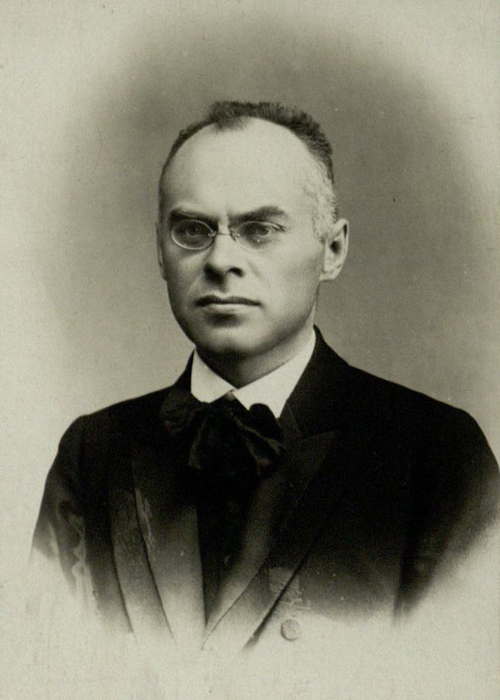Augustinas Janulaitis was a famous Lithuanian political and cultural activist. During the interwar period, he was a well-known lawyer and historian, and a professor at the University of Lithuania (from 1930, Vytautas Magnus University) in Kaunas. Janulaitis was also very interested in the cultural history of the Lithuanian nation. He collected material about various personalities who played an important role in Lithuania's history and culture: about the lawyer and historian Ignas Danilevičius (1787-1843), the writer and folklorist Mykalojus Akelaitis (1829-1887), the poet Kiprijonas Nezabitauskis (1779-1837), the cultural historian Simonas Daukantas (1793-1864), and others. He wrote and published biographies of Danilavičius and Akelaitis. His studies on Lithuanian culture had a huge influence on students, including Meilė Matjošaitytė-Lukšienė (1913-2009), who became a well-known cultural historian, and at the end of the 1980s, along with other Lithuanian intellectuals, she initiated the Sąjūdis movement. (Janulaitis was an uncle of Meilė Lukšienė.) During the Soviet period, Janulaitis was loyal to the regime: he participated in creating the Academy of Sciences in 1941, and was elected a member. In 1945, he became dean of the Faculty of History at Vilnius University. However, in 1946 during an ideological campaign initiated by the Party authorities against 'Western influences' and 'cosmopolitanism', he was accused of 'bourgeois nationalism'. He survived, but retired from the university and the academy. He died in 1950. Students and the younger generation of the Lithuanian intelligentsia perceived him as a representative of independent Lithuania's cultural elite. His studies on 19th-century Lithuanian culture, and his collection of documents about activists in the national revival, had a huge impact on Lithuanian historians, especially during the period of the Sąjūdis movement in 1988-1990.
The Janulaitis collection was started in 1967, when Janulaitis' wife, the painter Elena Janulaitienė (née Jurašaitytė, 1893–1982), and his niece Meilė Lukšienė gave the first documents to the Manuscript Department of the Library of the Lithuanian Academy of Sciences (from 2009, the Wróblewski Library of the Lithuanian Academy of Sciences). Lukšienė sorted and described the documents. The collection was added to several times, in 1969, 1976, 1978 and 1981, by Janulaitis' family, his wife and Meilė Lukšienė. It was supplemented by Janulaitis' son for the last time in 1984. In the end, the collection was sorted in 1985 by the staff of the Manuscript Department. It was not accessible to the public during Soviet times.
According to scholars (Romualdas Misiūnas, Rein Taagapera, The Baltic States: Years of Dependence, 1940–1990, London: Hurst, 1993, pp. 165-172), the late 1950s and 1960s in the Baltic states are generally called 'the thaw'. Changes in the general social and cultural context in Lithuania, and cultural liberalisation, could have influenced the decision to give Janulaitis’ papers to a state institution. However, another theory is also possible. Although there is no clear proof, the decision to give the collection to the library could have been influenced by personal contacts between Meilė Lukšienė, Janulaitis’ relatives and the staff of the library and the Manuscript Department (especially Juozas Marcinkevičius, the director of the Library of the Academy of Sciences of the Lithuanian SSR).

